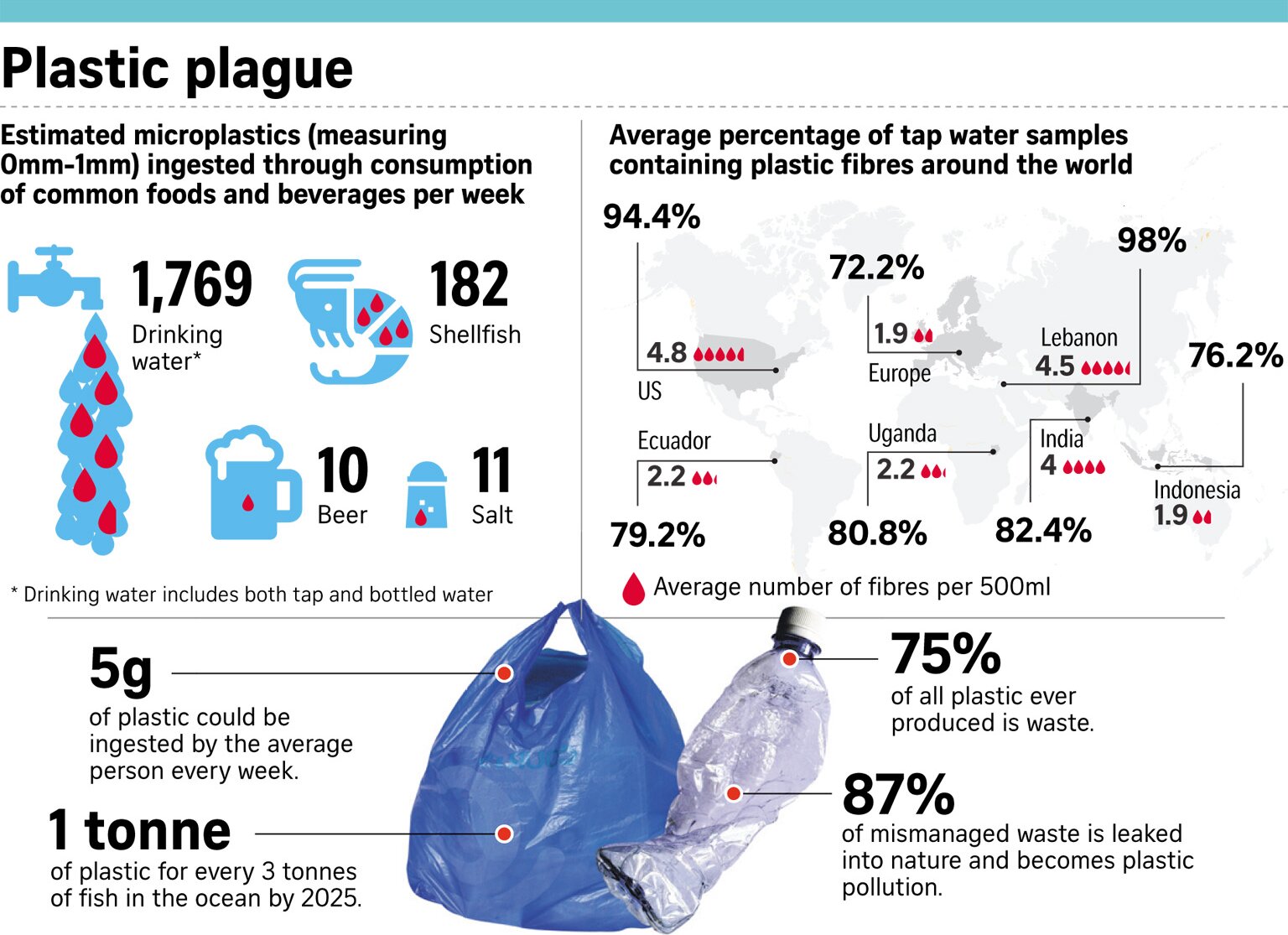Biodiversity & Environment
People's Ingestion Of Plastic
- 13 Jun 2019
- 3 min read
The World Wide Fund for Nature’s (WWF) study has revealed that people worldwide could be ingesting five grams of microscopic plastic particles every week, which is equivalent to the weight of a credit card.
- Microplastics are plastic particles measuring 5mm in size or smaller.
Findings
- Sources of plastic ingestion:
- Drinking water: is one of the largest sources of plastic ingestion(with plastic particles found in bottled, tap, surface and groundwater).
- Shellfish: account for as much as 0.5g a week.
- Inhalation represented a negligible proportion of microplastics entering the human body.
- Indoor air because of its limited circulation is more heavily polluted with plastic than the outdoors.
- Major sources of Indoor airborne microplastics are synthetic textiles and household dust.
Burden of Plastic
- In the last two decades, the world has produced as much plastic as during the rest of history, and the industry is set to grow by 4% a year until 2025.
- Ocean will contain one metric tonne of plastic for every three metric tonnes of fish by 2025.
- About one-third of waste plastics are dumped or leaches into nature, polluting land, rivers and the sea.
Plastic pollution and Wildlife
- Animals get entangled in large plastic debris, leading to injury or death.
- Animals also ingest large quantities of plastic that they cannot pass through their digestive systems, resulting in internal abrasion, digestive blockage, and death.
- Toxins from ingested plastic also harm breeding and impair the immune system of animals.
Curbing Plastic Pollution
- Political and economic actions to reduce the amount of plastic being disposed of into the environment.
- Minimize the use of plastics and encourage recycling of plastics instead of taking stringent acts of total ban or zero plastic.
- Legally binding agreement to combat marine plastic pollution - it should be a stand-alone treaty like the Montreal Protocol or the Paris Agreement.
- Binding national commitments and protocols for restricting commercial and household use of plastics.




